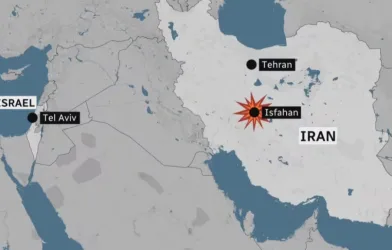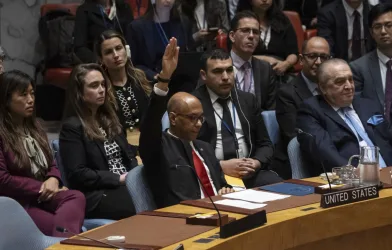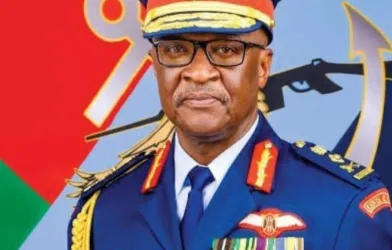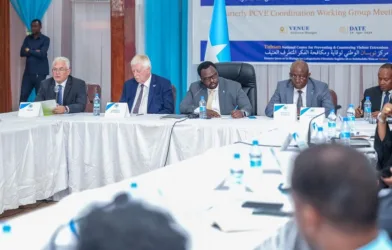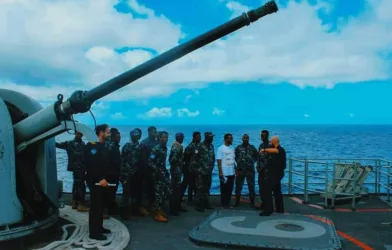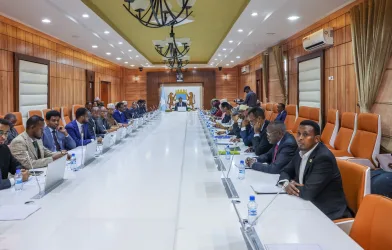
The 2009 is a year of darkness, death, displacement, detention and violence against journalists and the entire media fraternity in Somalia, according to the annual report unveiled today by the National Union of Somali Journalists (NUSOJ).
In the year alone, a total of nine (9) journalists were killed either in the line of duty or in targeted brutal attacks by enemies of media freedom, making Somalia the most dangerous place for a journalist in Africa.
According to the report, also, a total of 12 journalists were wounded and 15 others arrested in a systematic and well coordinated affront against the media in the horn of African country. Another 100 journalists received death threats.
The Annual Report on Press Freedom Violations, Somalia’s most authoritative publication produced in Somalia on the state of media freedom and rights of journalists, covers southern and central regions, Puntland and Somaliland. The report, this year, documents media deaths, journalists wounded, media practitioners arrested, ransacking of media houses and constant death threats which have sometimes led to journalists fleeing into neighbouring countries in fear of their lives.
“2009 became an outlandish and harrowing year as a wave of fiendish killings, arrests, death threats and intimidations against journalists reached incomparable level in the known history of Somali journalism,†the NUSOJ Annual Report on Press Freedom Violations, says in part.
The ensuing oppression and viciousness claimed the lives of media executives, reporters, photojournalists and cameramen who were all working with electronic media and also resulted in unparalleled level of journalists wounded and arrested, continues the report titled “War on Journalism in Somalia: Death, Displacement and Desolationâ€. Seven out of the nine journalists killed were murdered in Mogadishu. One was killed in Afgoye and another one in Beledweyne towns.
“Assassins’ bullets are felling journalists in cold-blooded murder while anger from warring sides is increasingly directed against journalists and media outlets for their coverage of events and issues related to the political and security situation,†said Omar Faruk Osman, NUSOJ Secretary General.
“The past twelve months stand out as the darkest and deadliest period for journalism Somalia. The work and life of journalists have become worthless and dispensable while attacks against journalists continue unrestrained. Many of the killers are known but there is no justice for their victims,†Omar added.
Besides the targeted assassinations, media professionals were also caught in the middle of combat zones. Warring sides in southern Somalia regard professional journalists who are dedicated to reveal the truth as either double agents or sympathizers of insurgents or radicals. Journalists in southern regions are unwilling to step into many parts of the south for fear of their safety. This has blacked these areas from news, allowing untold atrocities to go on unreported. Journalists are exposed to numerous risks in travelling to these areas on authentic reporting assignments.
With all these painful statistics, the question is why the media in Somalia is targeted. “The death-dealing attacks on the media are happening as a result of their fierce desire for professionalism and independent reporting and their refusal to kowtow to the authorities and insurgents who are hell-bent on bringing about all sorts of heartbreak,†said Omar.
Media deaths, threats and wounds had driven many journalists outside the country or have turned many into internally displaced people while those that remain in the country, especially in the southern and central regions, were forced to practice self-censorship. Many journalists in Mogadishu, Baidoa, Jowhar, Kismayu and Beledweyne hardly question the information provided by particularly armed groups. “Several media houses have taken refugee in entertainment, steering clear of airing news and current affairs programming,†he said.
“Continuing fighting between the Transitional government forces and Islamic insurgents, lack of capacity of the Transitional Federal Government to ensure law and order as well as peace and stability; political wrangles within the TFG, elections crisis in Somaliland, selective exercise of rule of law in both Somaliland and Puntland, undue misuse of power by the Puntland administration, the fragmentation of insurgent forces, and Al-Shabaab consolidation of control in at least 10 regions have all contributed considerably to the deepening crisis against the media,†Omar added.
This fierce cruelty against media community has “resulted in a steady stream of journalists escaping from Mogadishu in search of safety elsewhere. Independent-minded and reputable journalists face a stark choice to either flee the country for their security or risk death for their journalism work.
In Puntland, physical violence and misuse of law caused speedy increase of media attacks. Journalists are accused and attacked for threatening security or propaganda against the leaders of the Puntland. Critical and independent reportage was branded as a danger to “securityâ€, “rule of lawâ€, and the “dignity of leadersâ€. Journalists complained of the total disrespect of Puntland constitution law by the Puntland Intelligence Service and police forces.
NUSOJ states that overt and covert repressions against the media in Puntland are well orchestrated. With all the efforts to make peaceful transfer of power to the new president of Puntland, attacks and intimidation remain common in these northeastern regions of Somalia.
In the course of 2009, repression and violence against media in Somaliland persisted and multiplied. The suppression reached its peak during the elections crisis, when Somaliland authorities and their cronies intensified stamping out journalists who file unfavourable reports.
“Last year’s monstrous crimes against journalists in Somalia are a constant reminder to us and to the world community of journalists that we must redouble our efforts in the fight against wanton violence and injustice. We will persevere in our struggle for change, to secure respect for media rights and for the protection of journalists,†Omar said.
“We will continue to call on governments as well as international and regional partners to take urgent action to stem the tide of severe crimes by pressurising local authorities to recognise and live up to their human rights obligations. Our aspirations are clear – we will continue to rally our journalists, media executives and wider civil society in order to seek justice, challenge repressive acts, name and shame perpetrators and, above all, give a voice to all journalists, in particular those living and working under conditions of unfairness, fear and constant cruelty,†Omar declared.Â
Source: NUSOJ
Somalia: Death, Displacement, Detention and Violence perpetrated against Somali media
Published: January 2, 2010


